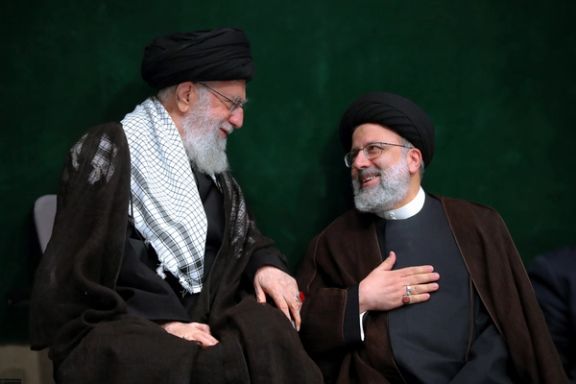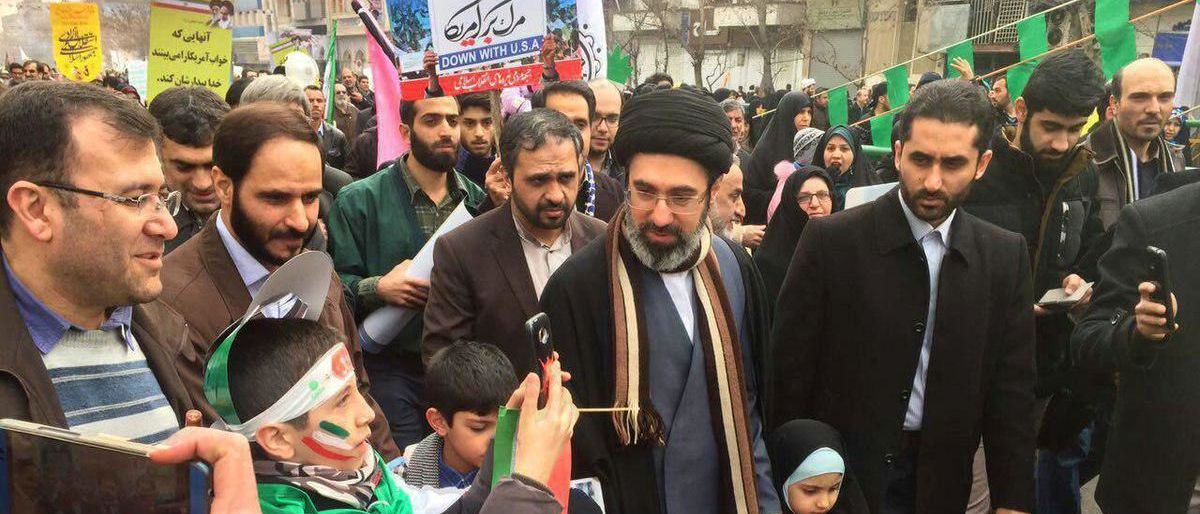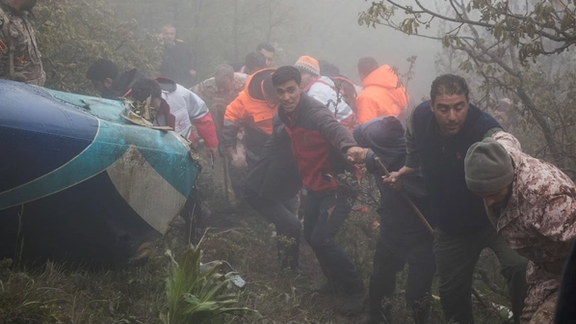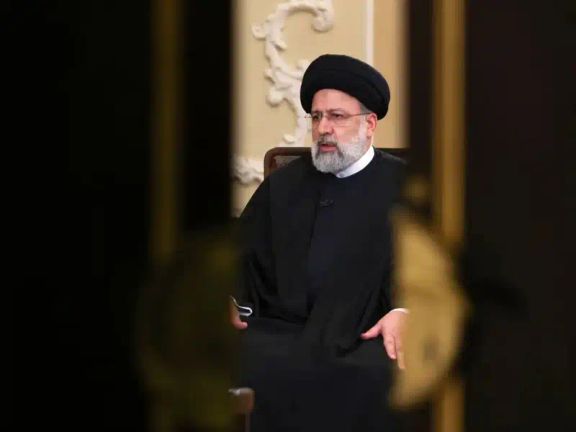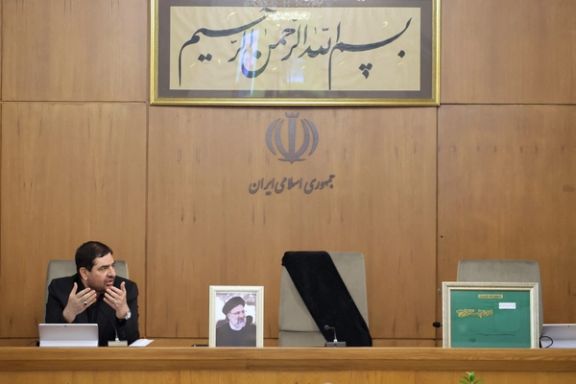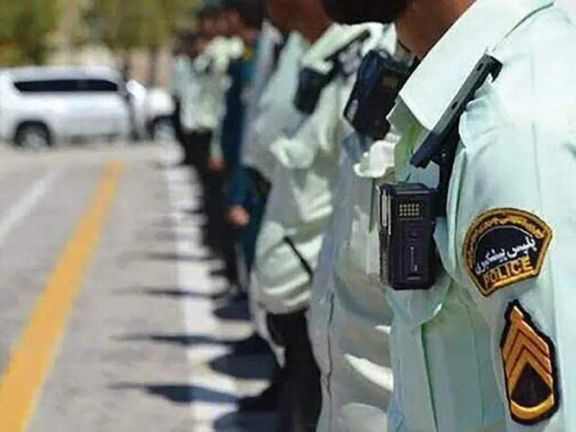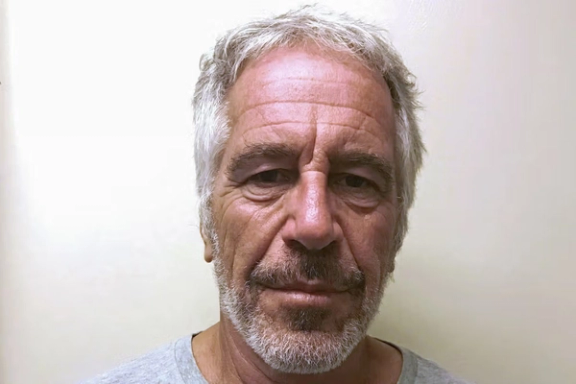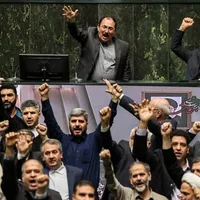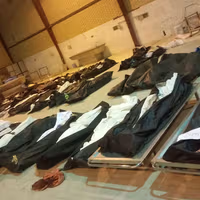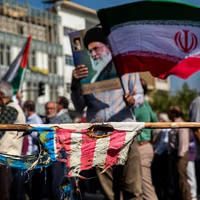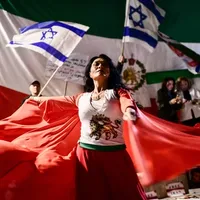Ebrahim Raisi, along with the country’s Foreign Minister Hossein Amir-Abdollahian, was traveling in a helicopter, when it crashed in a remote mountainous area in northwest Iran, killing all onboard.
The country's 85-year-old Supreme Leader, Ali Khamenei, faces the loss of not just two senior officials – but also his protégé.
Raisi, a hardline fundamentalist notorious for his involvement in vast crimes against humanity in Iran, was one of the two key figures considered to succeed Khamenei as the country’s ruler.
Now, Iran faces a dual succession crisis, as the Wall Street Journal’s Sune Engel Rasmussen argues. Khamenei must not only appoint a new President but also find someone who could ultimately succeed him as the country’s Supreme Leader.
Beyond the orchestrated presidential election that is set to take place in 50 days, the next weeks and months will likely be closely watched by observers.
Iran analyst and expert Karim Sadjadpour argued that Raisi’s death would create a succession crisis in the country.
The cleric, a close confidante of the Supreme Leader, was reportedly groomed for years to one day take up Khamenei’s position.
The only other name that has prominently been floated to succeed as the country's ruler—albeit unofficially—is Khamenei’s own son, Mojtaba.
His anointment, Sadjadpour said, could “trigger popular unrest.”
“His lack of legitimacy and popularity means he’d be entirely reliant on the Revolutionary Guards to maintain order. This could hasten the regime's transition to military rule or its potential collapse,” Sadjadpour wrote.
Complicating Mojtaba’s potential selection is the notion of hereditary rule—something the first Supreme Leader reportedly staunchly opposed.
But, citing an Iranian source close to Khamenei’s office, Reuters reported that “Khamenei has indicated opposition to his son's candidacy because he does not want to see any slide back towards a system of hereditary rule in a country where the US-backed monarchy was overthrown in 1979.”
Ali Ansari, however, in an interview before Raisi’s death was firm in his view that Khamenei would keep things in the family.
“It’s either Mojtaba or his brother Mustafa. People say this is impossible, it’s a republic, it’s a revolutionary regime, but to be honest, hereditary autocracy is not unusual in Iranian history. The anomaly is the republic,” the professor of Middle East history at St Andrews University said.
With Mojtaba, author Afshon Ostovar contends, Khamenei would name a successor whose positions closely align with his own – and that of the IRGC.
Mojtaba, who does not hold an official position, is a mid-ranking cleric. He has largely remained behind the scenes, though he has reportedly played an influential role as a close aide to his father.
“Indeed, the moments that have given Mojtaba the most public exposure, such as the crackdown on protesters in 2009, have also revealed his close affiliation with the security forces,” Ostovar writes.
Alireza Arafi, 67, an influential cleric and member of the Assembly of Experts, the group responsible for selecting a new supreme leader, has also on occasion been floated as a possibility for succeeding Khamenei.
That looming transition, after Khamenei dies, would mark only the second change of Supreme Leader since the inception of the Islamic Republic in 1979.
The news of Raisi’s death, and what it will mean for Khamenei’s succession, comes amid increased tension over Tehran’s support for terrorism in the Middle East and a domestic legitimacy crisis, as discontent with the regime has solidified over recent years.
“After many years of internal and domestic unrest from opposition groups and dissident groups, this is a delicate moment for [Iran],” Sky's Middle East correspondent Alistair Bunkall said in one of his recent reports.
Though nationwide protests have peaked and receded over the decades, the regime’s grip on power and its use of violence to stifle and kill dissent have prevented the formation of any official and organized opposition group inside the country.
“It’s self-evident that if a liberal alternative to the Islamic Republic fails to organize itself, what will follow the Islamic Republic will be an illiberal outcome, much like post-Soviet Russia,” Sadjadpour warned in a recent interview.
Ostovar notes that no matter how much the Iranian regime prepares for the eventuality of Khamenei’s death, his departure can easily spark a crisis.
Ultimately, the decision on who will succeed Khamenei will likely need the approval of the powerful IRGC, which has helped Khamenei stay in power for nearly 35 years and has a vested interest in maintaining its tight control over the country.
